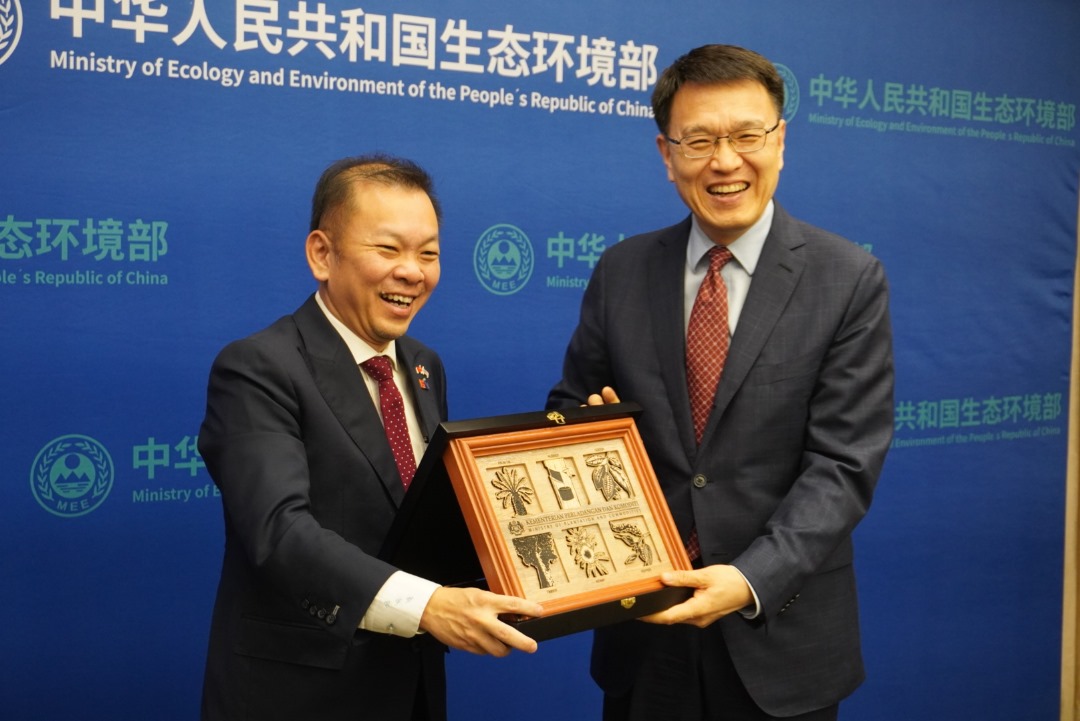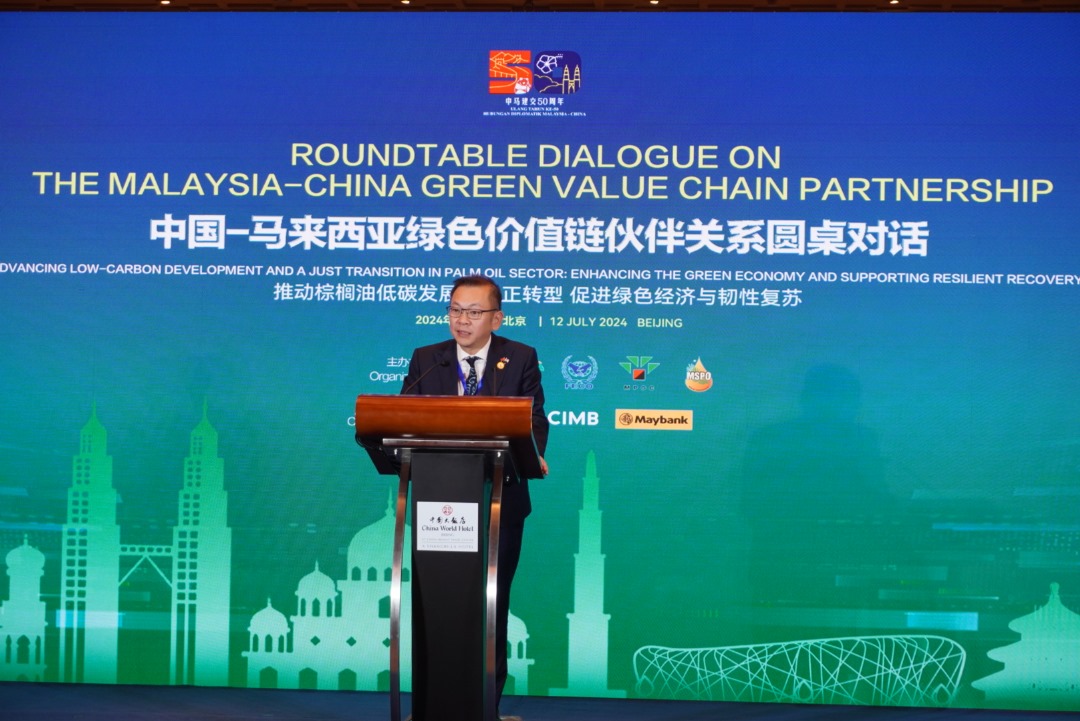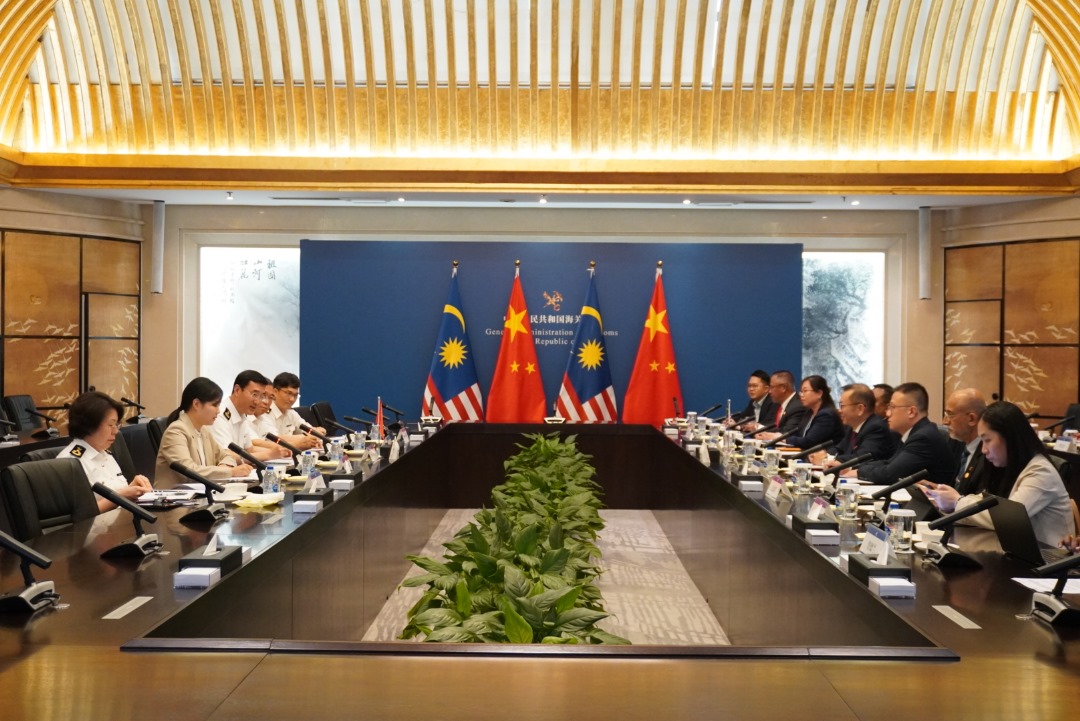
Deputy Minister of Plantation and Commodities Datuk Chan Foong Hin reiterated Malaysia’s commitment to supplying China with Malaysian Sustainable Palm Oil (MSPO) certified palm oil and related products.
This strengthening of the bilateral relationship comes on the heels of a Malaysian delegation to China, led by Chan, for a five-day working visit to mark the 50th anniversary of diplomatic ties between Malaysia and China.
During the delegation’s visit from 8 to 12 July, he met with several Chinese leaders, among which, the Vice Minister of Ecology and Environment (MEE) of China Mr Zhao Yingmin in Beijing. At the G2G meeting last Friday, 12 July, Chan expressed Malaysia’s intention to cooperate with China, particularly in establishing a shared consensus during engagements with the European Union, regarding the European Union Deforestation Regulation (EUDR).
“This collaboration aims to ensure a unified stance and understanding in discussions about the EUDR's implementation and impact. Malaysia looks forward to cooperating with China's MEE in promoting sustainable development, environmental protection, and addressing climate change through the promotion of the MSPO Certification Scheme in the Chinese market,” said Chan, receiving a positive response from his counterpart.
He also highlighted the four challenges mandated by the EUDR since 1 January 2020, which are being addressed through the MSPO (Malaysia Sustainable Palm Oil) Certification Scheme: Traceability System, Legal Land Title, Deforestation-Free, and No Forced Labour. Besides that, in alignment with the green value chain, the deputy minister pledged support for the Chinese Government’s initiative to use biodiesel and Sustainable Aviation Fuel (SAF) by sharing technical information and supplying biofuels. MSPO Certification Scheme in Malaysia applies to oil palm plantations, independent smallholdings, and palm oil processing facilities, to ensure that they meet the standards outlined in the MSPO Standards.
He said that the MSPO Certification Scheme was important in the Chinese market to support sustainable development and environmental protection. "We look forward to collaborating with China's Ministry of Ecology and Environment (MEE) in promoting sustainable development, environmental protection, and addressing climate change," he said.

Chan also spoke at the ‘Roundtable Dialogue on the Malaysia-China Green Value Chain Partnership: Advancing Low-Carbon Development and a Just Transition in the Palm Oil Sector: Enhancing the Green Economy and Supporting Resilient Recovery’ in Beijing last Friday. “Developing a green economy requires international cooperation and the joint efforts of all countries. In this process, Malaysia and China will continue to strengthen policy alignment, deepen technical exchanges, and promote the implementation of more green projects for mutual benefit,” he stressed.
“We hope that through this high-level dialogue, we can work with all parties to explore low-carbon development and transition to palm oil, promoting the green economy and resilient recovery,” said Chan.
China is the world’s second-largest palm oil importer. According to the Observatory of Economic Complexity (OEC), China imported a total of roughly US$4.85 billion worth of palm oil in 2022, with US$3.61 billion (74.4%) coming from Indonesia and US$1.22 billion (25/2%) from Malaysia.

Other G2G bilateral meetings included meeting Vice Minister of the General Administration of Customs of China (GACC) Mr Zhao Zenglian, to discuss technical collaboration and trade agreements. “Malaysia looks forward to continued cooperation with the GACC on port supervision and food safety. This is crucial given the smooth collaboration paves the way for exploring international cooperation in key areas, such as palm oil,” he said.
This trip was organised by the Ministry of Plantation and Commodities, in collaboration with the Palm Oil Research and Technical Service Institute of the Malaysian Palm Oil Board (PORTSIM) based in Shanghai. The deputy minister’s trip to China also culminated in witnessing MoU signings between Malaysian and Chinese companies for the supply of palm oil and palm oil products worth over RM200 million (approx. US$42.82 million).
The four MoUs signed included an agreement between Kuala Lumpur Kepong Bhd and BOCE Trade Service Co Ltd for tocotrienol exports; a partnership between Taobao (China) Software Co Ltd and Able Perfect Group to expand digital market access; a deal between Taobao (China) Software Co Ltd and Sawit Kinabalu Group for crude palm oil trade; and a collaboration between JF Nutritech and Palmort Food Tech (Shanghai) for the application of red palm oil in animal feed. Chan attended the MoU signing ceremony together with Datuk Ahmad Parveez Ghulam Kadir, the director-general of the Malaysian Palm Oil Board, and Cao De Rong, president of the China Chamber of Commerce for Import/Export of Foodstuffs, Native Produce, and Animal By-products (CFNA).
